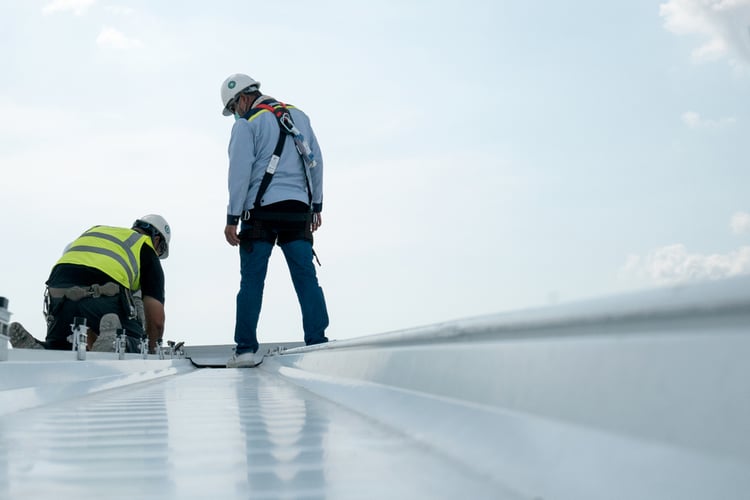Solar energy now represents half of installed production capacity in the US and companies are well aware of its benefits. However, there are many important decisions that affect the end result of installing a commercial solar panel. In this article, we will give you 4 tips that will help you get better results.
Get a professional solar photovoltaic system design for your commercial building.
1) Get a professional energy audit and roof inspection

Knowing how your building uses energy is very useful before installing any system that generates electricity. A professional energy audit provides a detailed analysis of how each building system uses electricity and fossil fuels, so you can make the best decisions to reduce consumption. You can also combine your commercial solar installation with energy conservation measures for even greater savings.
An energy audit will show you your current electricity consumption profile and the potential savings you can achieve with energy efficiency measures. Your solar power system can then be designed according to expected consumption after improving efficiency. If a commercial solar panel is sized based on current power consumption and energy efficiency is improved later, you could end up with an oversized system.
Getting a roof inspection is equally important so you can identify the best areas to install solar panels. Design engineers can also choose an ideal racking system, ensuring modules are firmly fixed without damaging the roof. Beware of suppliers who offer “generic” solar offers without prior evaluation; They are probably looking for a quick sale, making assumptions and ignoring important details.
2) Make sure your solar project meets local codes and manufacturer requirements

When installing solar panels, you also need to make sure that all instructions provided by the manufacturers are followed carefully. You can now find many brands of solar panels with product warranties of up to 25 years, but only if they are installed and used correctly. The design of your solar photovoltaic system must not only comply with local building codes, but also with instructions provided by equipment suppliers.
3) Hire a qualified solar installation company

Poor workmanship can lead to many technical problems, even if you buy high-quality solar panels and hire a professional design company. You should look for a contractor who is licensed in the state where your building is located, and ideally, they should also be certified by NABCEP (North American Board of Certified Energy Practitioners).
The best solar installers will include additional warranties beyond those offered by manufacturers. This ensures that your investment is protected and that technical issues that may affect performance in the future are covered from the outset. Solar manufacturers may also offer better warranty terms based on the installer's qualifications.
4) Look for high-quality solar panels and inverters

High-quality solar panels have a higher price tag, but offer greater productivity over time and a longer lifespan. In other words, every dollar invested in higher quality is recovered multiple times in the form of electricity savings. A qualified design company can choose the ideal equipment brands for your projects, but being familiar with solar panel specifications is also helpful.
Ideally, you should look for solar panels with high conversion efficiency to utilize your roof space optimally. You also need to consider the performance of PV modules at high temperatures, as they can become very hot after several hours in the sun. The rated lifespan of solar panels and their warranty are also important, as you will want a system that generates clean electricity for a long time.

